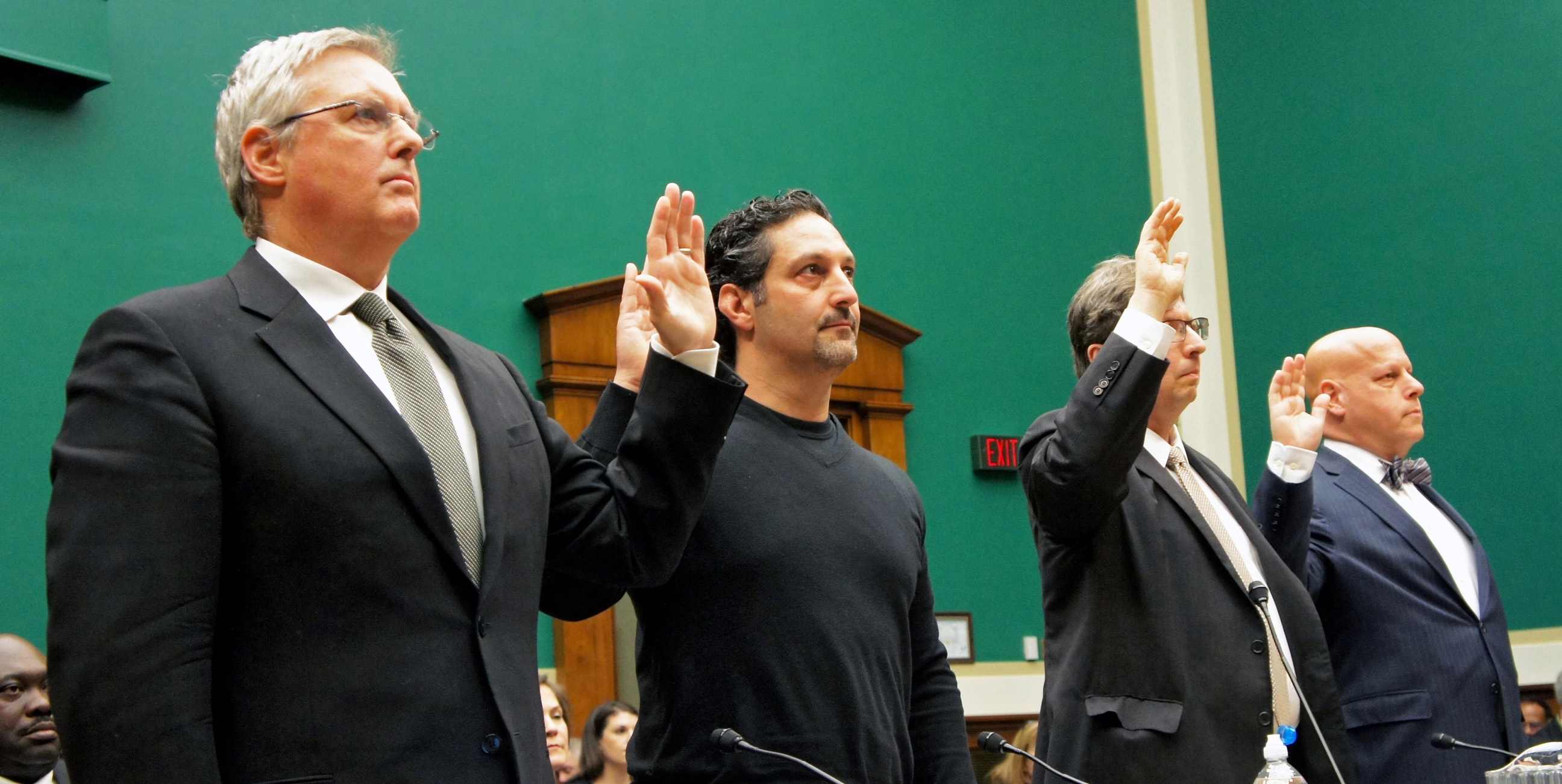WASHINGTON – The head of a House investigative committee said Tuesday it’s time to “move on from Apple vs. FBI.” That appeared to be happening, but two local police intelligence chiefs took up the fight, saying tech giants like Apple “have taken it upon themselves to decide who can access critical information in criminal investigations,” in the words of Thomas Galati.
Galati, chief of the New York City Police Department’s intelligence bureau, told a House commerce oversight subcommittee that until about 19 months ago, Apple “held a key that could override encryption protections, but a new operating system closed that “back door.” The result is that law enforcement cannot get vital information about suspected terrorists and criminals, he said.
“CEOs do not hold themselves to the same public safety standards as elected officials or law enforcement professionals,” the NYCPC intelligence chief said.
Capt. Charles Cohen of the Indiana State Police intelligence unit, echoed Galati’s frustration, saying “essentially what happened is, Apple solved a problem that does not exist” when the company changed its encryption protocol to prevent access.
But Apple General Counsel Bruce Sewell disputed that, saying “we did not have a key 19 months ago that we threw away.”
Cohen brought up that reports that Chinese news agencies had that Apple had shared its source code with the Chinese government.
But Sewell again disputed the reports, stating unequivocally that Apple had never shared its source code with China, although it had been asked to do so.
Although the FBI had gone to court to force Apple to provide access to information on an iPhone used by one of the San Bernardino terrorists, it was the FBI’s executive assistant director for science and technology, Amy Hess, who said law enforcement needs help from tech companies to deal the increasing amount of information that is encrypted.
“Law enforcement tools are becoming increasingly less effective than in the past,” Hess said.
She said the government doesn’t have the resources or time to develop the high-end tech skills to successfully hack encryption themselves.
“I don’t see that as possible,” Hess said. “We really need the cooperation of industry and academia.”
Sewell said he and a top FBI lawyer had been planning meetings for their staffs to spend time at each others’ headquarters, but then the San Bernardino shootings put things on hold.
The one thing all the panelists agreed upon was that the increasing use of encryption is making it harder for law enforcement agencies to catch child predators, violent criminals and terrorists. Cohen compared an encrypted phone to a safe deposit box that is impervious to drills. He said that asking Apple and other tech companies to have a method of providing access is akin to having the bank manager use a second key to open a locked safe.
But Sewell noted that “the people subject to law enforcement inquiries are less than one-tenth of 1 percent of our hundred millions of users,” while all users’ information would be vulnerable if Apple made a way into the data for law enforcement. In essence, everybody’s safe uses the same key, so there’s no way to provide access to a terrorist’s phone without putting everyone at risk.

